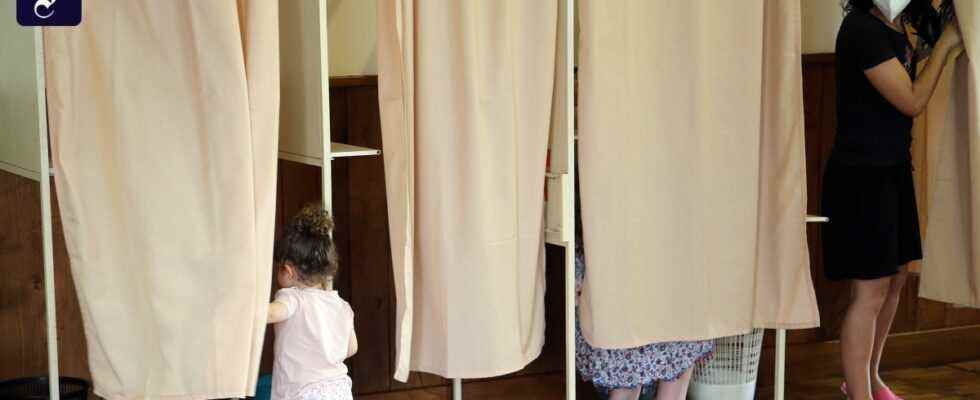Dhe long-distance duel between President Emmanuel Macron and left-wing spokesman Jean-Luc Mélenchon for a parliamentary majority caused voter turnout in the second round of the general election to rise slightly. By 12 p.m., 18.99 percent of those eligible to vote had cast their votes. That was slightly more than at the same time a week ago, when turnout was 18.43 percent. The turnout is 1.2 points higher than in the second round of the parliamentary elections five years ago. Pollsters have predicted a historically low voter turnout.
The president, who was re-elected two months ago, entered the election campaign late. He appealed to the French to give him a clear government majority in view of the war in Ukraine and spiraling inflation. Among Macron’s most important projects are raising the retirement age to 65 and work obligations for welfare recipients. The left-wing voter alliance NUPES, led by Mélenchon, on the other hand, promises a return to retirement at 60, an unconditional basic income for young people under the age of 25 of 1,063 euros a month and an increase in the monthly minimum wage to 1,500 euros. Mélenchon is also aiming for price blocks on staple foods. His promise is shortened: Vote for me, then you’ll have more in your wallet.
The government camp Ensemble (“Together”) and the NUPES alliance of Left Party, Communists, Socialists and Greens came out tied in the first ballot. Five candidates, including four from the Left Alliance, were elected with an absolute majority in the first ballot. Voters will decide on the 572 remaining seats on Sunday.
15 members of the government stand. Justine Bénin, Secretary of State for the Sea, was the first cabinet member to lose her constituency in Guadeloupe. She will have to leave the government, according to an informal rule imposed by President Macron. Europe Minister Clément Beaune, Minister for State Reform Stanislas Guérini and Environment Minister Amélie de Montchalin are also in a poor starting position in their constituencies. Prime Minister Élisabeth Borne is doing better in her constituency in Normandy, but could be in for a surprise if left-wing voters mobilize strongly for her Green opponent.
Opinion research institutes predict between 230 and 305 seats for the government camp. The absolute majority is 289 seats. If Macron’s camp falls short of an absolute majority, the president could rule with a relative majority and form alliances of convenience. The left-wing alliance NUPES is predicted to have 140 to 220 seats. The last time there was a government with a relative majority was in 1988. Three times in the past few decades it has even happened that the president had to govern with a prime minister from the opposing camp due to a lack of a majority in parliament. This is the situation that Mélenchon is aiming for, which in France is called cohabitation. The polls have so far ruled out that possibility.
